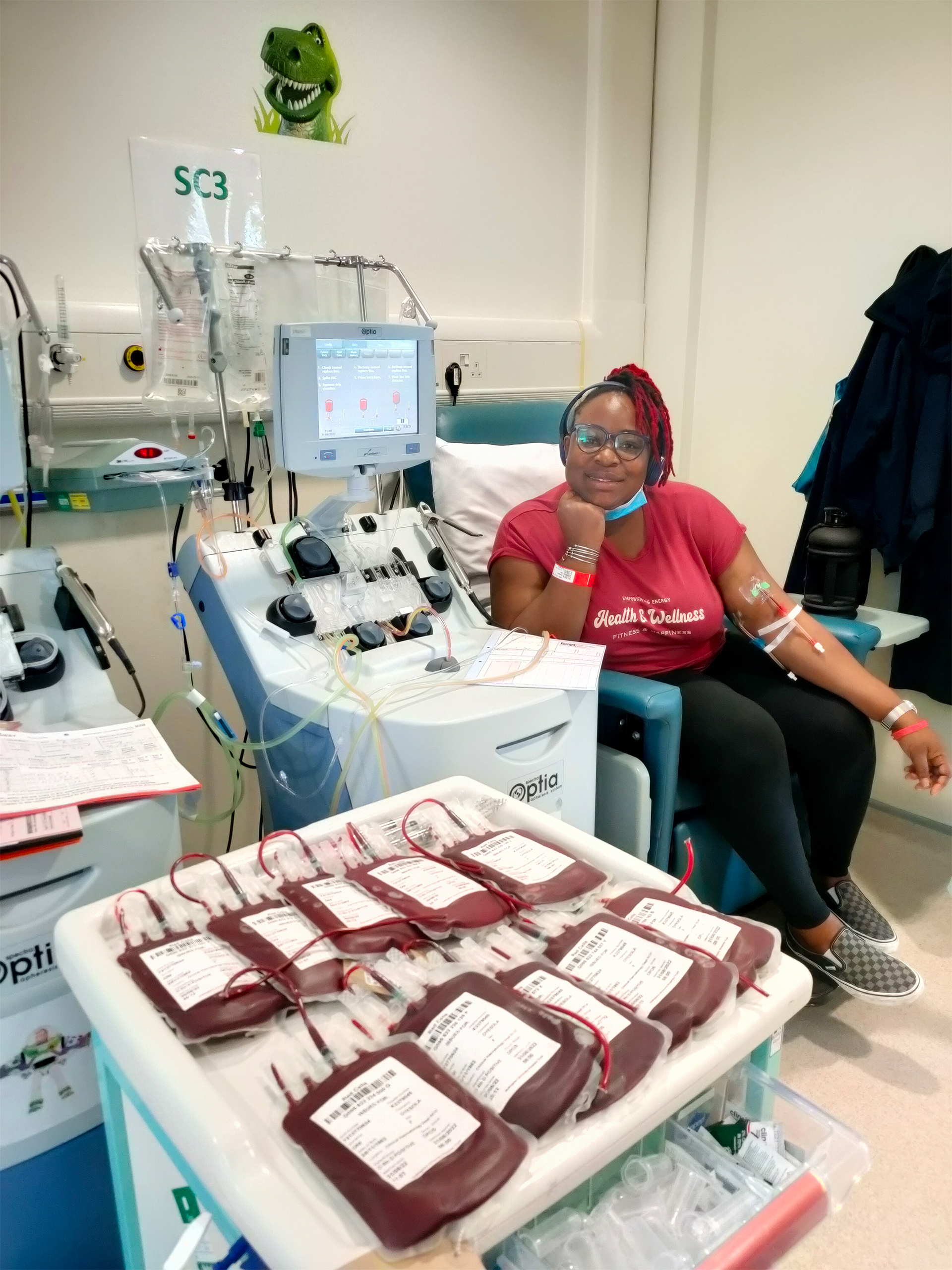Strength can be found in communities coming together – just like a family.
That’s why Black communities have the unifying power to treat the blood disorder sickle cell and help friends and neighbours who are battling the disease.
Sickle cell is a serious, lifelong and life-threatening blood disorder that mainly affects people of Black African and Black Caribbean ethnicity.
New figures from NHS Blood and Transplant reveal that a record 250 donations are now needed every day to treat people with sickle cell, many of whom who need regular blood transfusions every four to six weeks.
This figure shows a huge increase in demand – only 150 donations a day were needed five years ago.
And hospital demand is likely to rise even further, by 14% over the next five years.
That’s why we have launched a new campaign called ‘Not Family, But Blood’ to urge more people of Black heritage to donate blood and save up to three lives in one hour.
Blood donations save lives.
Sickle cell is the fastest growing genetic disorder/condition in the UK. Sickle cell symptoms include anaemia, strokes, blindness, bone damage, and over time can experience damage to organs, such as liver, kidney, lungs, heart and spleen.
Ethnically matched blood provides the best treatment – without it people with sickle cell are at risk of strokes, organ failure or even death.
This year 16,600 Black Caribbean or Black African donors are urgently needed to give patients the life enhancing and life-saving treatments they need.
Rising demand for Black donors
Demand for blood to treat sickle cell has risen by 52% over the past five years and is projected to continue to rise.
The rising demand is driven by increasing patient numbers, as people live for longer, and greater use of complete blood transfusions – known as red cell exchanges – which improve patient outcomes.
Currently, NHS Blood and Transplant is only able to provide matched blood for just over half of the hospital requests – other patients need to be treated with O Negative, the universal blood type.
Being treated with O Negative rather than the correct blood type is clinically safe but could mean, long term, patients are more likely to develop antibodies. This puts them at risk of complications and makes it even harder to find blood they can receive.
Oyesola’s story
Oyesola Oni, 39, needs all her blood replaced by donor blood every five weeks due to sickle cell.
Her condition is so severe she could easily suffer a stroke or organ damage, with potentially fatal consequences.
The mother of one from Nottingham said: “During a sickle cell crisis, it’s like someone is stabbing me, at other times it’s like something crushing my bones. It’s excruciating.”
She added: “Every few weeks the hospital needs to remove all my sickled cells and replace them with donor blood.
“The need for blood never stops. The demand keeps increasing. I was moved from eight pints of blood every six weeks up to 10 pints every five weeks.
“I would urge people of Black heritage to step out and donate. It’s in your blood to help people like me.”
Dr Rekha Anand, Consultant in Transfusion Medicine for NHS Blood and Transplant said:
“Matched blood is vital for sickle cell patients to reduce the risk of serious complications, and Black people are more likely to be able to donate matched blood.
“There has been a small rise in Black people donating blood, but we urgently need more to become regular donors. Giving blood is easy, quick and safe – and you will save and improve lives.”
NHS England Director of Healthcare Inequalities Improvement and GP, Dr Bola Owolabi, said:
“Sickle cell disproportionately affects people from a Black African or Black Caribbean background, and these new figures show hospitals need more blood for people with sickle cell disease than ever before.
“I urge anyone from these communities who is able to give blood to step forward and help treat the thousands of people living with this painful hereditary condition.”
Register to become a blood donor today at blood.co.uk.

































































